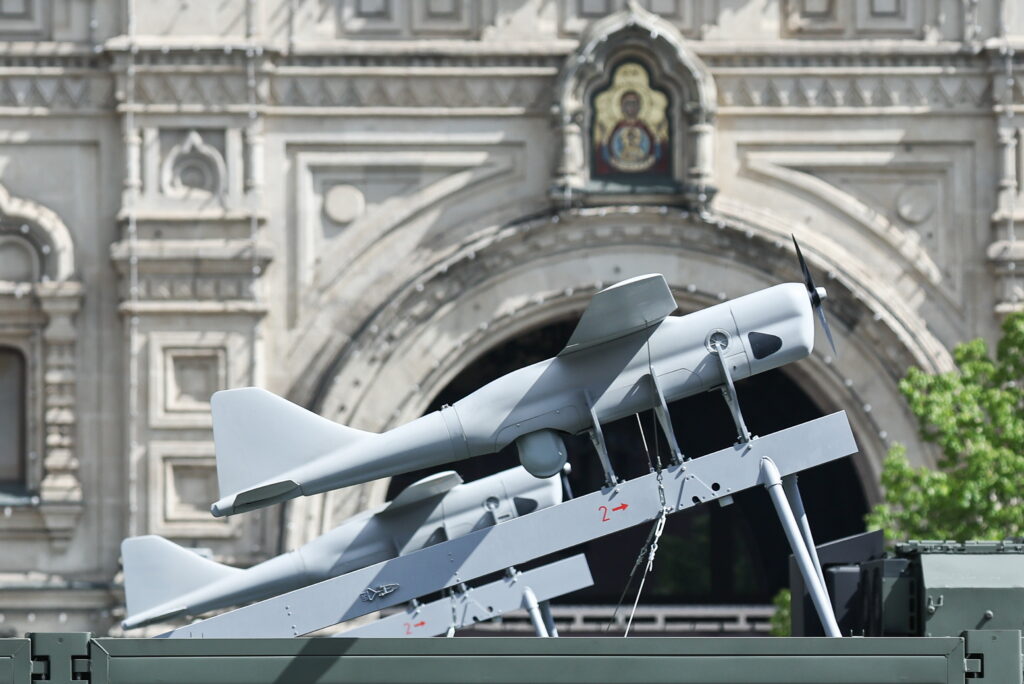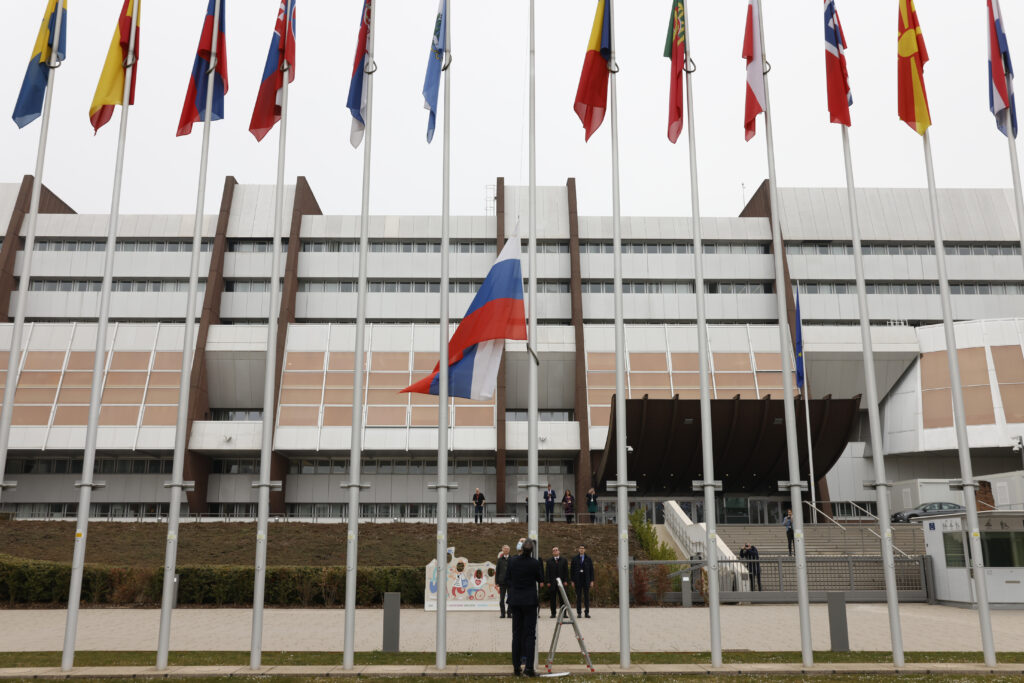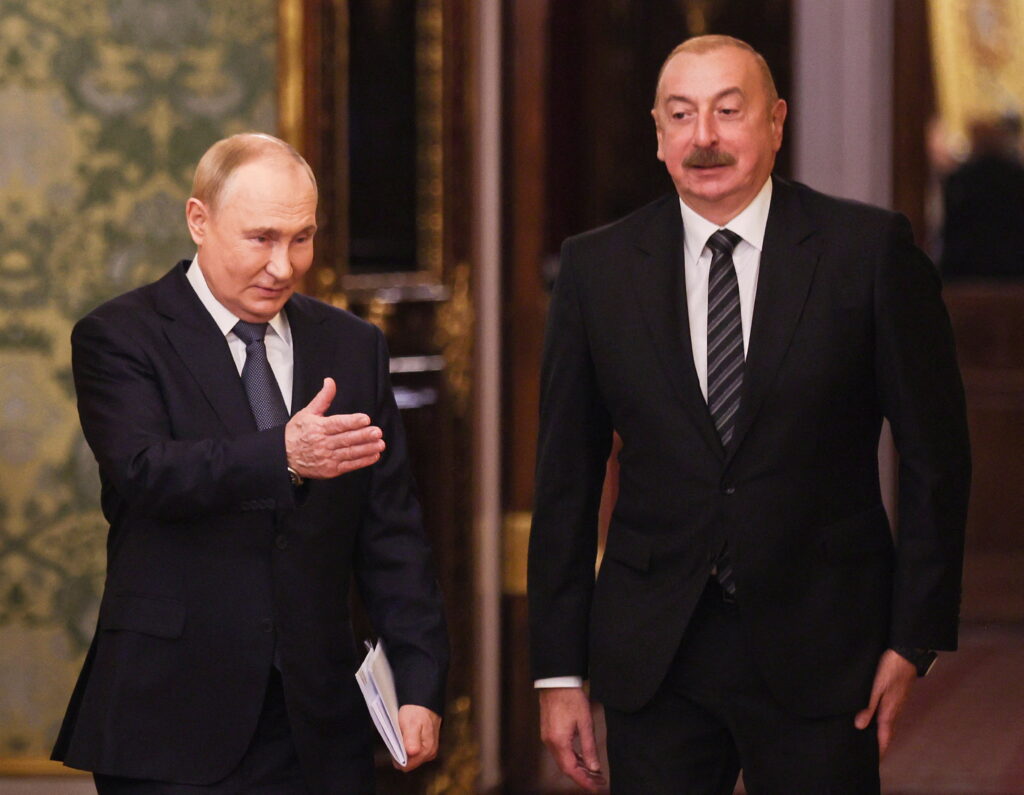The winding down of the USA’s international role, the appearance of new centres of power, and the convergence of Russia and China are all factors contributing to an extremely unstable and potentially conflict-primed international environment. Such an environment can hardly be comfortable for Russia, which is undergoing an acute shortage of the sources it needs for sustainable development. With its ageing population, poor education and healthcare systems, inefficient industry, and deprivation of access to European and American technologies over the past 15 years, there are many obstacles to Russia becoming an autonomous centre of power. Furthermore, Moscow’s political cooperation with the industrially developed and increasingly aggressive China threatens Moscow with growing inequality and a subordinated position in relation to Beijing.
Therefore, Russia needs to compensate for its weakness in a changed world, find a counterweight for its growing political dependence on China, and find a way to preserve access to capital and technology, key sources of modernisation. Above all, it must be stressed that whether Russia can achieve these goals depends on much more than its domestic political situation.
A Self-Preservation Strategy: Rapprochement with Europe as a Counterweight to China
Historically, Russia has maintained close ties to Europe, which in one way or another has always represented a source of modernisation and thus an opportunity to make up for delayed development. America’s refusal to bear the brunt of being the world’s sole superpower, allows Europeans a heightened degree of autonomy within the framework of transatlantic unity, giving Russia the chance to form its own special relationship with Europe. Such a relationship could play the role of a counterweight, in turn allowing Moscow to preserve its autonomy in its dealings with Beijing. This same rapprochement with Europe could also partially compensate for Russia’s economic and technological backwardness. The basic principles of this rapprochement could be the following:
- A unilateral guarantee to refrain from the use of any type of nuclear weapons on the European continent, and the ruling out of such an option from all strategic documents.
- A return to the principle of inviolability of European borders, at least on the level of declarations. At the same time, a concrete approach to resolving the question of Crimea depends on the domestic political situation in Russia. At the very minimum, this problem should be acknowledged as exceptional, and its solution postponed, giving the declining interest in the USA in pressuring Moscow on the issue.
- A reduction in military forces stationed on the Baltic and Black Seas, together with the observance of the Vienna Document concerning the conduct of military exercises and the admission of European observers to them.
- Admission of European companies to Russia’s energy, mining, transportation, and natural resource processing sectors, currently considered by Moscow to be strategically important.
- A declaration on and practical commitment to the principles of human rights and freedoms. Depending on the country’s domestic political situation, steps taken in this direction could either be purely symbolic, or sincere, real, and long-term.
It is clear that putting these principles in practice would require a serious change in how Russia approaches its relations with Europe. However, such a change under the scenario envisaged would be of crucial importance.
Playing a Part in the Pacific
Russia’s ability to preserve its role until 2028 as an independent political actor of consequence will be unsuccessful unless Moscow is able to play a role in the development of East Asia and the Asia-Pacific region in general. It’s worth remembering that China’s role in this huge region can be compared with that of Germany in continental Europe from the late nineteenth to the early twentieth century. Furthermore, Russia is at present a peripheral actor in the region today, whose Pacific-facing regions are sparsely populated and underdeveloped.
Therefore, the most feasible and most optimal way for Russia to include itself into the Asia-Pacific political arena would be not as a counterweight, but instead a makeweight. Russia’s role would be to tip the scales in various situations which may arise between China and its neighbours, from Japan to South Korea, Malaysia, or India. In the long-term perspective, such a role would be impossible to play without Russia eventually becoming a full-fledged participant in the economic development of the Asia-Pacific region. Here are a few steps Russia could take in that direction:
- The conclusion of a final peace agreement with Japan. A key obstacle here is the resolution of the territorial dispute over the islands of Iturup, Kunashir, Shikotan, and the Habomai archipelago. A concrete formula for resolving this territorial dispute, which has dragged on for many years, depends on a number of factors. Let’s start with the most conservative scenario, in which Russia refuses to transfer not four islands to Japan, and not two, but none whatsoever. In this case, it’s worth considering a few principles which could hypothetically help both sides find a way out from this dead end.Firstly, it should be possible for both sides to declare the islands their own within the framework of a joint document. Secondly, the disputed territories should become offshore economic zones, with the majority of practical questions delegated to local self-government. Thirdly, a mechanism must be found which would allow for the Kuril Islands to become a site of uninterrupted economic cooperation between Russia’s Sakhalin Oblast and Japan’s Hokkaido Prefecture. Fourthly, Russia should step away from any moves to expand its military presence in the Kuril Islands, with the exception of the minimal infrastructure required to regulate entry to the Sea of Okhotsk.Of course, the chance always remains that a mutually acceptable solution to the Kuril Islands dispute is never reached at all. However, Russia’s taking the initiative to resolving it could strengthen its political position in the face of other territorial disputes in the Asia-Pacific region, particularly if a vacuum of power should form in the region.
- Commitment to the status quo in the Taiwan dispute. Moreover, Russia should declare its intention to not interfere and refuse from offering support to any side, including military and technical support should armed conflict erupt.
- A “green light” policy towards South Korean and Japanese investors when it comes to extracting natural resources in Siberia and the Russian Far East, and the primary processing and export of those resources to their final destinations in Asia-Pacific markets. This could help attract companies from Japan and South Korea to develop Russia’s infrastructure.
- Changing the focus of Russia’s bilateral relations with ASEAN (Association of south-east Asian Nations) member states from political to economic ties, up to and including the creation of a free trade agreement between Russia (or at the very least certain regions of the Russian Far East) and all other members of the association.
Such an approach would allow Russia to work towards its own economic development and avoid being drawn towards China’s side in the likely scenario of conflict breaking out in the region. Furthermore, Russia could increase its foreign capital in the case of a resource deficit and general regional instability.
Nuclear Non-Proliferation: Adapting to New Realities
With Iran now possessing nuclear weapons, the international framework for enforcing nuclear non-proliferation is undergoing its deepest crisis yet, and may even be on the verge of collapse. Russia happens to be one of the guarantors of the Nuclear Non-Proliferation Treaty of 1968, and has traditionally supported its international status. At the same time, Russia’s tough position on the issue works to the detriment of its stable relations with Iran, while more flexible position would put Russian-Israeli relations at risk. As a result, the emergence of another nuclear power and the perspective of new nuclear armament programs in the region compel Moscow to seek an answer to this challenge.
Thus adapting the Nuclear Non-Proliferation Treaty to new realities is impossible, as is rejecting it outright. Here the following possibilities are open to Russia:
- The further reduction in nuclear weapons in the framework of Russian-American relations, or even as a voluntary, unilateral measure. While Russia still cannot maintain its nuclear forces at the level defined by the START-3 treaty, this still gives it the opportunity to advocate for nuclear disarmament.
- Taking efforts to organise further multilateral negotiations on nuclear disarmament in the framework of the “nuclear five” (Russia, the USA, Great Britain, France, and China.)
- Renewed efforts to hold consultations among all states with nuclear weapons in order to develop further mechanisms to avoid incidents and the unintentional escalation of conflicts, as well as to set thresholds on nuclear weapons stockpiles and their means of delivery.
- Providing security assurances to states without nuclear weapons.
Of course, these steps will not solve the problem alone, but they will allow Russia to retain the political initiative, thereby maintaining is status as an influential world power even given an acute shortage of resources.
What does the future hold for relations among Russia, Europe and the United States? This article is part of a series on future scenarios, sponsored by Riddle in cooperation with Johns Hopkins University SAIS and DGAP, supported by the Robert Bosch Stiftung.











